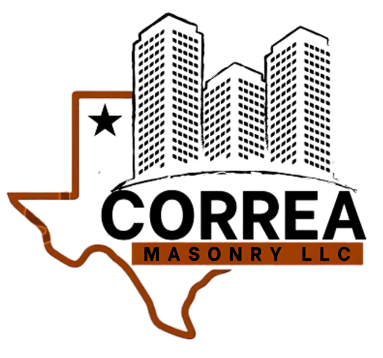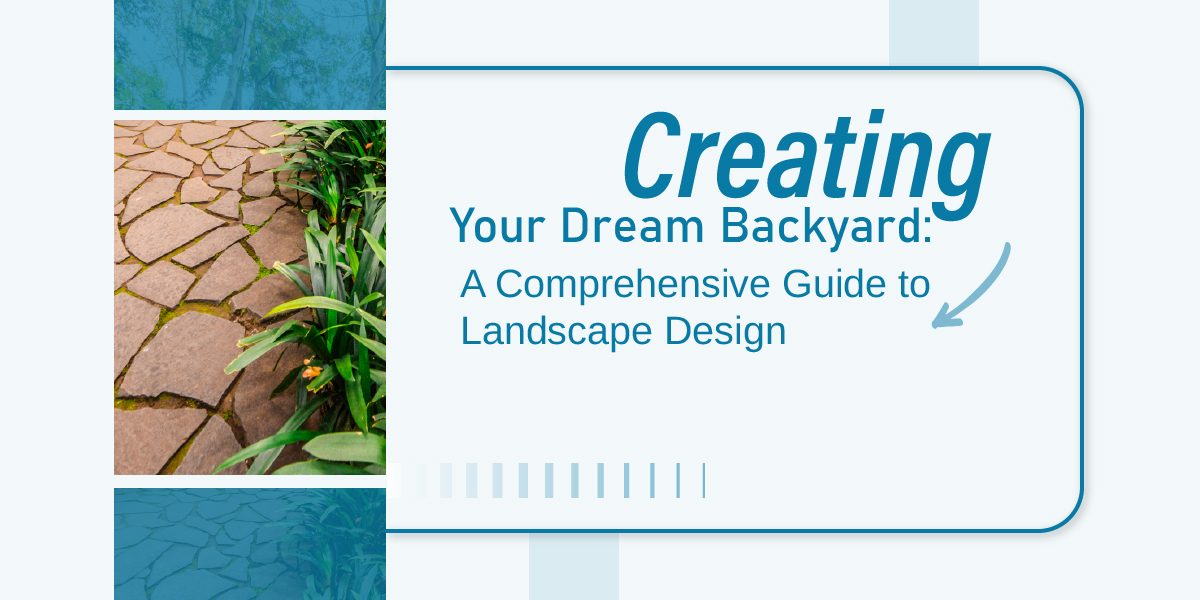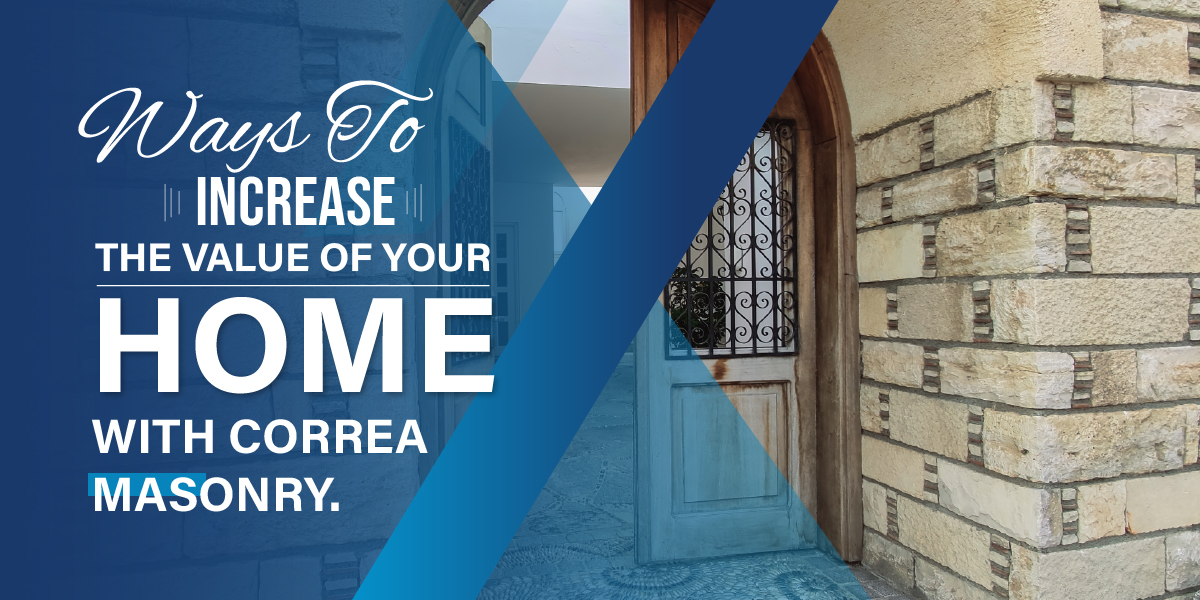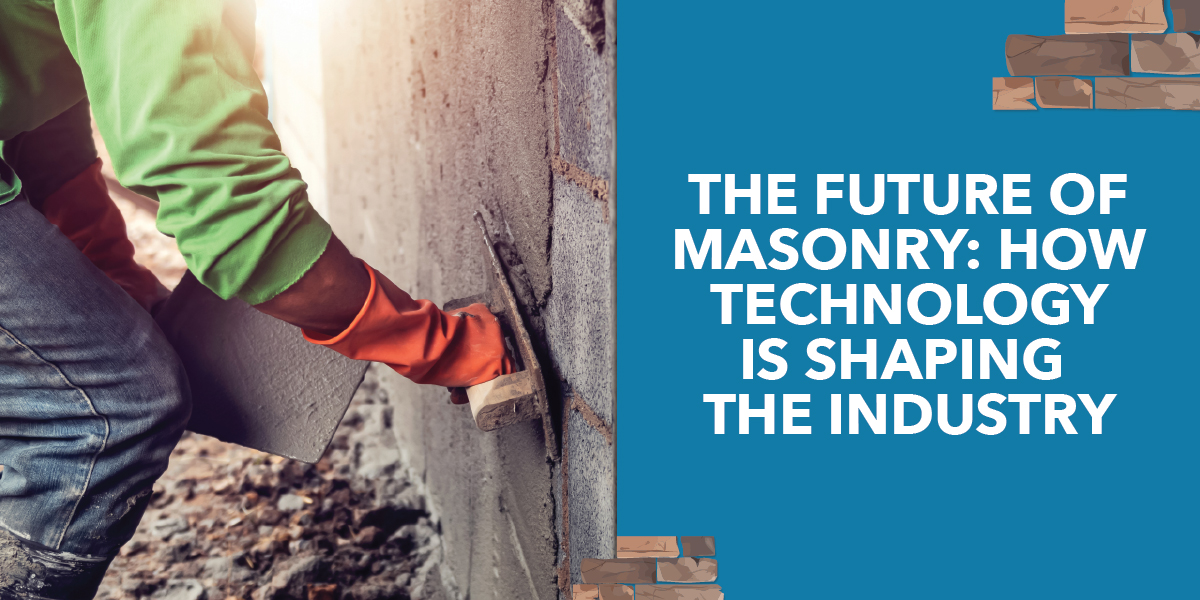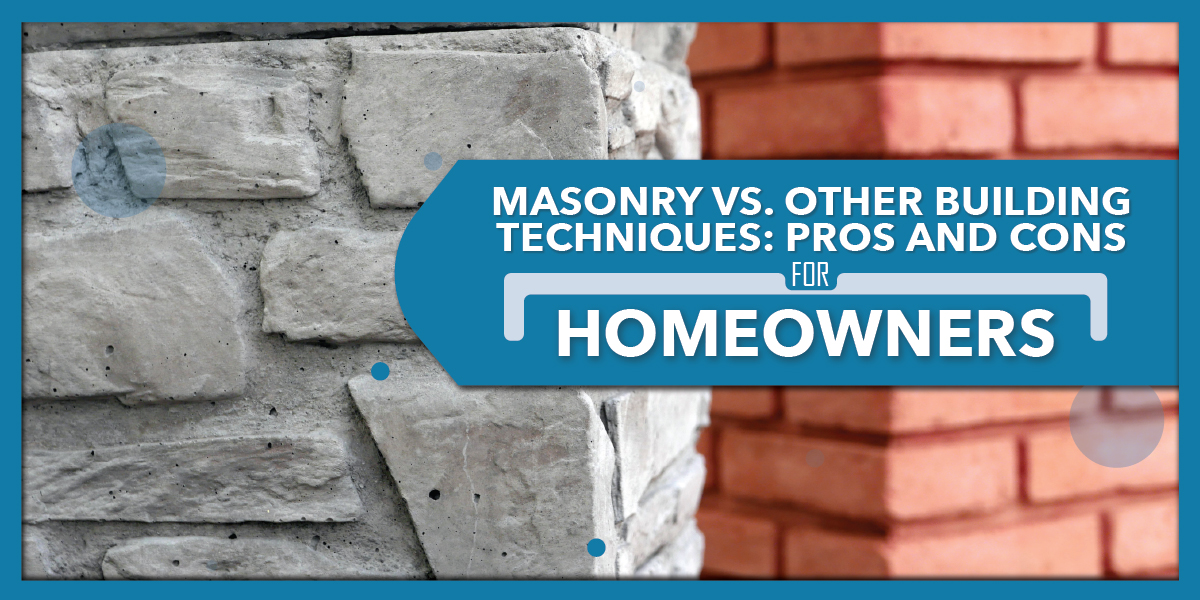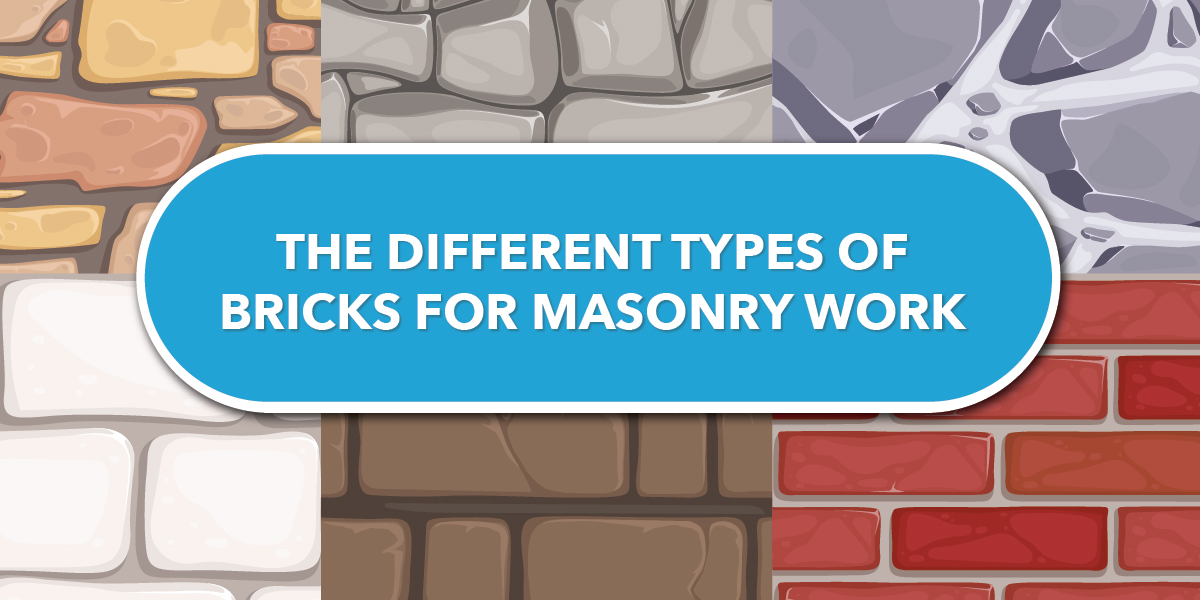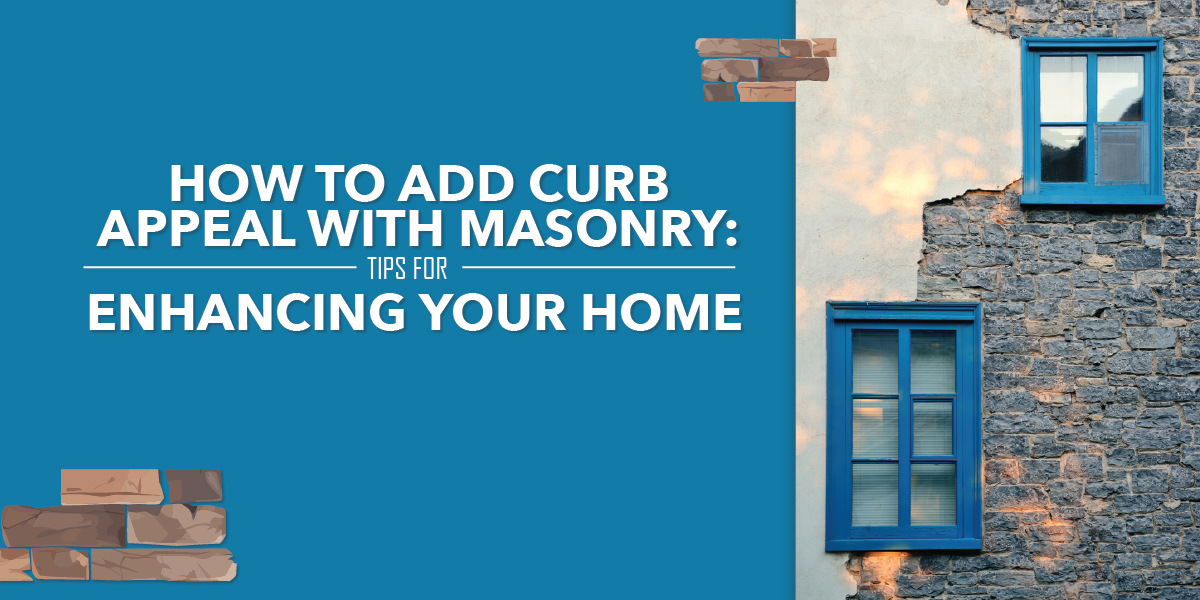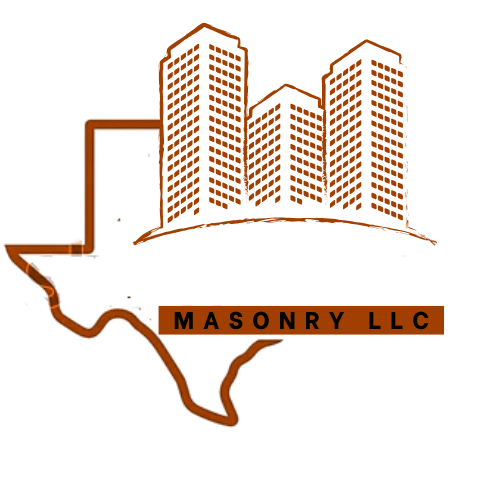In the current trending housing market, people want structures that are robust, easy on the eyes, and friendly to the environment. Masonry is one of the oldest building methods yet regarded as one of the most dependable.Residential masonry construction services produce houses for the homeowner with measurable attributes of quality, permanency, efficiency, and aesthetics. Now let’s discuss why people continue to turn to masonry construction even in the present times. Durability and Longevity It is agreed that buildings constructed using masonry display characteristics such as tightness, security, and strength. Bricks, stones, and concrete blocks are some of the materials that are traditionally fire-resistant, non-combustible, resistant to termite attack, and fire and storm-proof. This adds the advantage of durability and also adds value to the home as it is easy to sell old homes that were well constructed. Energy Efficiency The construction materials used in masonry are thick; they do well in preserving heat during the cold season while denying heat during the hot season. The effect of thermal mass delays the demand for artificial heating and cooling, thus saving a great deal on energy consumption. Aesthetic Versatility Masonry is one of the most versatile materials when it comes to design freedom. Regardless of whether the construction is country-like with natural stone, traditional with brick, or high-tech like concrete masonry can be adapted to any architectural style. The extensive use of masonry construction enables the integration of structured designs like arches, compulsory columns, and other classy surface finishes that enhance the outlook. Masonry also compliments the final look of homes internally and externally making it an evergreen construction. Low Maintenance Requirements Unlike other construction materials that keep needing repainting, resealing, or repair, most of the masonry surfaces are quite self-sufficient. They also do not chip, crack, or fade which means your home will always look great for many years. Usually, the only maintenance carried out for a masonry home entails washing frequently and occasionally brushing or scraping. Sustainability and Environmental Impact People are becoming more conscious of the environment and the impact of the structures they put up, and masonry construction is creditable. Formats like brick and stones are natural, and since they can be locally produced, the costs of transportation are relatively low. Also, masonry is easy to recycle, so it can be recommended for those who want to build a home sustainably. Enhanced Safety and Fire Resistance Masonry homes give an additional shield because of their inherent quality of heat resistance. While wood or some other flammable material will burn, masonry does not burn and offers an important safeguard in this respect. Further, the construction is more rigid and can withstand strong winds, and earthquakes among other disasters making masonry safe for homeowners. Investment Value Houses constructed by using masonry have higher resale value because; they are resistant to weather conditions, have a good appearance, and are energy-efficient. Home loan lenders understand the importance of constructing a masonry home since most buyers appreciate it as a good investment. Hiring a residential masonry construction service is advisable for one’s house structure since it adds value to the house and in most cases, the structure appreciates. In today’s house building, masonry can be regarded as an optimal option for people who look for durability, elegance, and environmentally friendly materials. Whether constructing a house from the ground up or remodeling a current home, residential masonry construction services provide unparalleled benefits that mix the old and the new. Homeowners must embrace masonry since it offers the best houses with excellent working amenities expected to last for several years.
How Concrete Masonry Walls Prevent Mold and Moisture?
A solid and long-lasting structure demands the correct materials, specifically their ability of professional concrete masonry services to prevent the flow of elements. In most cases, moisture has become a cause of problems such as molds, wood destruction, and damage to a structural element. In this case, what may protect mold and water infiltration particularly well is concrete masonry. Concrete masonry walls be it concrete block or poured concrete are well known for resisting water. Concrete’s Natural Resistance to Water Concrete masonry walls inherently resist water intrusion. Unlike wood, drywall, and other porous building materials, concrete does not absorb water easily. This is because it is a dense material with low porosity. As a result, concrete prevents the easy passage of water through it as happens in other materials. Generally, water leaves a concrete surface or drips down the surface rather than getting absorbed. For example, it also has an added meaning that helps in preventing mold, which needs a wet, moist place to grow. However, it should be pointed out that although concrete masonry is resistant to water, it is not waterproof. Penetration of water into the concrete can take place over time through cracks, joints, and an area not well sealed. Therefore, maximum sealing and proper construction techniques of concrete masonry must be assured, including vapor barriers and effective drainage systems. Mold Needs Moisture to Grow There are three basic requirements for mold growth namely, moisture, an organic food source, and the right temperature. Probably, the best way to prevent mold is through lack of moisture. In that area, concrete masonry stands out because concrete is highly resistant to water penetration; hence, it inhibits the collection of moisture required by molds to grow. In concrete masonry construction, water from where it could otherwise penetrate walls and lay down conditions to its preferred growth, mold is deflected or redirected away from the building itself. It has a propensity to heavily reduce the chances of experiencing mold issues in basements, crawl spaces, or bathrooms where water tends to congregate. Thermal Mass and Moisture Regulation Probably one of the least known advantages of concrete lies in its thermal mass, namely, the ability of the material to absorb and store heat. Concrete possesses a high thermal mass that, apart from regulating indoor temperatures, also helps regulate moist levels. In areas with fluctuating humid levels, excess moisture from the air gets absorbed by the concrete walls. As the air dries out, it can draw moisture stored in walls back into the environment, and indoor humidity is therefore balanced, dispelling the conditions that cause mold. Concrete Masonry Walls Are Fire-Resistant While the interest here is more with the prevention of mold and moisture, it is also worth noting that concrete masonry walls also are fire-resistant. This may occur indirectly in building fires where the suppression agent is water; however, this is secondary while providing some help in preventing the growth of mold. Concrete possesses fire-resistance properties that allow it to stand at higher temperatures without degrading or absorbing water, thereby maintaining its moisture-resistant properties after a fire. In addition, concrete does not release harmful toxins if exposed to extremely high temperatures; therefore, there is little chance that it would create an atmosphere that would thrive in the development of mold after a fire. The Finale: With proper construction techniques, sealants, and vapor barriers, concrete masonry walls can provide long-lasting protection against mold, moisture, and the health issues that they bring with them. Whichever it is, be it building or renovating a house, choosing concrete masonry will be quite a relief knowing that your building is going to be dry and healthy and free from mold for many years to come.
DIY vs. Hiring a Masonry Stone Contractor: What’s Better?
In the case of outdoor tasks such as constructing a patio, a pit for the fire, a candle, or a retaining wall, the question of whether to do the work oneself or employ an expert stone masonry contractor in Dallas appears. They both have advantages and disadvantages, which means that all of them need to be considered carefully. Cost: Is DIY Cheaper? Since you’re cutting out the labor cost, you pay only for the materials, and it can significantly cut down on the cost of the project. This does, however, come with some caveats. First is an investment in good tools and equipment, especially if you do not already have them. Hired or purchased special masonry tools such as mortar mixers, trowels, stone cutters, and safety equipment can become costly. Moreover, in case, you make mistakes in the work, you may have to repair it and even buy some more material. On the other hand, a masonry contractor will generally charge upfront because they will be billing their labor and materials. A professional will probably work faster, use fewer materials, and not make high-priced mistakes that might save you money down the road. You will also have peace of mind knowing the job was done right, so the risks of needing additional repairs or adjustments going forward will be reduced. Time and Efficiency: How Much Time Do You Have? Even if you are as handy as all get out, laying stones, mixing mortar, and ensuring the work is level and safe means many hours—especially on weekends or evenings when you can’t be there full-time. A DIY project can drag on for weeks or months, depending on the size and complexity of the job. Furthermore, the time you could put into it may go to those pockets of other things already competing for your time in life, such as family time, work, or doing other household things. A professional masonry contractor will get the job done much more efficiently. With experience and with proper tools, a contractor can complete projects in a fraction of the time it would take you. Whether or not it is building a retaining wall or installing a stone pathway, a contractor will know how to get the job done most efficiently, which may be invaluable if you’re looking to get the job done quickly. Skill and Expertise: Do You Have the Right Know-How? It is something more than the usual DIY skills; in other words, it is about precision, technical know-how, and experience in laying stone, brick, or concrete. This is the art of knowing the balance between materials and mortar as well as the environmental surroundings that surround you. Poorly installed stonework can cause structural problems, such as cracks, shifting, or even collapse. Professional masonry contractors have years of hands-on experience and industry knowledge. They understand the subtleties of materials, knowing when such stones expand and contract with temperature or application of mortar at correct proportions. The contractor will ensure not only that the job looks nice aesthetically but, more importantly, that it is structurally sound and long-lasting. Tools and Equipment: Do You Have the Right Gear? Masonry work demands specialized equipment, and most relevant tools are not usually found in any well-stocked homeowners’ garage. While heavy equipment such as mixers and scaffolding are needed, so too are smaller equipment such as trowels, chisels, and stone-cutting saws for the proper completion of a project. Even rental masonry tools at home improvement stores are available to the DIYers, though that too comes with its share of inconveniences. Besides being doubly sure you’re using the tool right, there’s the cost of renting or buying a tool – all additional hassles. Mistakes can happen or even accident. Final Thoughts: Any decision to do DIY masonry or seek a contractor depends on the complexity of your project, budget, and experience level. DIY probably saves you money and gives you a comprehensive sense of accomplishment, but hiring a Correa Masonry ensures completion within time, budget, and good work quality.
How to Choose the Right Custom Stone Work for a Patio?
What makes the construction of a custom stone patio such an enjoyable process is that it enhances your outdoor living region both practically and aesthetically. However, with the wide array of materials, styles, and available designs, picking the right stonework may be challenging at times. You have to know first what you need, what you prefer, and what’s within your budget, and then consider what you would like to have for durability, looks, and upkeep. Determine the Purpose of Your Patio Before delving into the types of stones and design ideas available, you need to figure out what the primary purpose of your balcony will be: Will it be a place for dining and entertainment, or will it be a quiet retreat? Knowing what will be used will help guide every other decision about materials and layout. For example, if you’re going to be hosting frequently, you may want a more durable to withstand heavy foot traffic and furniture. If the patio is just simply a quiet place to relax, you can forget more about the durability aspect and focus on aesthetics and ambiance. Consider Your Climate and Weather Conditions Your local climate has a lot to say when it comes to selection for your deck. All different types of stones react differently with varying weather conditions, and you make a selection that can bear the temperature, moisture, freezing, and thawing cycles of your area. For instance, stones like granite or slate are used in colder climates where freeze-thaw cycles are frequent, being less prone to cracking than softer materials like limestone. In warmer, drier areas, stones like travertine or sandstone remain cool underfoot and could be wiser choices. The weather conditions always come into play when choosing your style to ensure it will last longer without any unnecessary repairs over the years. Evaluate Stone Durability and Maintenance Different types of stones vary drastically in durability and the amount of maintenance they require. While some can bear the wear and tear without losing an ounce of beauty, some may require cleaning, sealing, or other forms of upkeep fairly frequently. First, the hardness of stones makes them resistant to scratching, such as granite, which cannot be stained easily and is also not affected by weather conditions. Bluestone is one of those tough options that have fewer chances of cracking and require less maintenance. On the other hand, softer stones like limestone and sandstone may need to be sealed regularly and are more prone to damage from the outdoor elements. Decide Between Natural Stone and Manufactured Stone The major decision you’ll make when choosing custom stonework for your patio is whether to use natural pebble or manufactured sometimes called concrete pavers. Both have their positives and negatives. No two pieces of stone are alike, lending even more natural beauty to your outdoor space. A problem with using natural ones is that it is much more expensive, and sometimes it requires more care. Manufactured stone is far less expensive and comes in many color and style variations to give the appearance of natural stone. The laying of concrete pavers is relatively easy, and their maintenance is generally lower. These pavers will more than likely lack the richness of natural stone and may well not last as long. Your budget and preference for style, along with if you’re looking at this from a long-term investment perspective, will determine your choice between the two options. The End: Perhaps it means so much more than simply picking a stone that looks nice. Take your time in designing your patio, investigating types of stone, and collaborating with an experienced craftsman to bring your beautiful outdoor space into a reality that may add value to your home for many years.
Creating Your Dream Backyard: A Comprehensive Guide to Landscape Design
Having a good backyard design can improve the overall appearance, given that most people see it as a valuable amenity where one can relax, host friends, and interact with nature. Equally, be it a calming arrangement of a space suitable for gardens, a lawned patio area, or even an area perfect for families and or parties, landscaping is an integral aspect in the accomplishment of your fantasy backyard. It does not matter at all, and it is not about seeking to make the most out of the space within your property, the slope of the track, or the size of the lawn. With just a little inclination and lots of help, you will find that even your outdoor space transformed into an attractive social space to almost fit ones of modern society. Assessing Your Space: Understanding Your Backyard’s Potential First, any landscape design project needs an evaluation of the space that one has. Begin by taking stock of the size and shape of your outdoor space in the back. Note any existing features, like trees, slopes in the yard, and other structures that may be important to your design. In addition, consider the climate of your area and the type of soil it contains because these will dictate the kinds of plants and materials you will be able to use. Once you know the topography and boundaries of your space, consider what you want to do with it. Do you want a place for a garden, a seating area, or a kids’ playground? In all likelihood, you’ll need one or two or maybe all three of these. Clearly defining your goals will help you make informed decisions throughout the design process. Designing with Purpose: Creating Zones for Functionality Having different zones in your backyard is one surefire way to make sure your yard is functional and that space is used for a specific reason. Consider dividing your space into sections according to activity. For instance, you may have an area for dining and entertaining, another area for relaxation, and another area for gardening or playing. Using hardscaping materials, like pathways, patios, or low walls, can define these zones and provide seamless transitions between them. The key is to make it harmonious in such a way that the flow feels natural and inviting but also make each zone accessible and practical to use day by day. Choosing the Right Plants: Balancing Aesthetics and Maintenance One of the more fun things in landscaping a yard has to do with picking the plants that will bring your outdoor space into being. The trick is finding a nice balance between appearance and maintenance. If you wish to fill your yard with exotic plants, consider how much time and effort you will need to put into caring for them. Native plants are also a good option, as they have developed to live in your region’s climate and soil conditions and are, thus, lower to maintain. Furthermore, don’t plant only those flowers that bloom during the same time of the year, as this will not create much interest in the garden throughout the whole year. The plan should be well balanced with plants such as trees, shrubs, flowers, grasses, etc, to give the landscape a total look as well as character. The End: Designing your dream backyard is so much fun since you will have an area created to suit your needs and tastes. Taking into consideration the evaluation of your space, dividing it into functional zones, choosing the right plants, adding some water features and lighting to it, and going by sustainable practices, your backyard will soon turn into a beautiful and practical outdoor retreat. And do not forget the most crucial touches that will make it yours.
Ways to Increase the Value of Your Home with Correa Masonry.
Whether you are considering selling your property or want to improve the view of your house, adding professional masonry service can make a huge difference. With Correa Masonry, you are guaranteed the best craftsmanship in presenting homeowners with a variety of solutions aimed at reinforcing the structural integrity and appeal of your house. Enhancing Curb Appeal with Custom Walkways and Driveways The easiest way to raise its market value is by improving the exterior of the house. A beautifully paved driveway or a stone path leading up to the front door gives the property a sophisticated and inviting look. These layers serve both aesthetic and practical purposes. They come in handy when improving the overall appearance of a site, preventing blockage upon the water, and enabling the movement of vehicles and pedestrians by providing a better surface. More importantly, walkways and driveways made of better-quality materials, like pavers or natural stone, can last for decades with just minor maintenance. Long-lasting durability can also be an added appeal for prospective buyers who do not want to struggle much with home features. Increasing Living Space with a Custom Patio or Outdoor Kitchen To enhance the beauty of your house and make the most of the outdoor spaces available, it is necessary to extend the livable area beyond the walls. Constructing a dining patio or other outdoor elements, for example, a swimming pool or outdoor kitchen, creates an entertaining dining and relaxing space. Experts can help you build the patio or outdoor kitchen that best suits your home style and your preference with personalized solutions. A patio is a very functional and charming addition to an outdoor space, especially one that is designed out of brick or stone. Adding an outdoor kitchen takes it to the next level and can be one of those highly requested features for potential buyers who are ‘entertainers’. Building Retaining Walls for Structural Integrity and Beauty Retaining walls serve functional and decorative purposes and can add so much to a landscape. Whether your property has sloping areas or you simply want to create distinct garden beds, Professionals can build sturdy retaining walls to enhance the look of your yard, adding essential structural functions, too. Besides preventing soil erosion, stone or brick retaining walls define spaces in your yard and add a great deal of depth and dimension to your overall landscape design. Upgrading Your Home’s Exterior with a Stone or Brick Facade Arguably, there’s no better way to add value to your home than giving its exterior an incredible new look with stone or brick facing. The best at taking uninspiring or out-of-date exteriors and reimagining them into exceptional modern facades that stand out from the rest in your neighborhood is Correa Masonry. Plus, these materials have low maintenance, are energy-efficient, and boast great insulation-thus, they make your home more comfortable and reduce energy costs. Adding Value with a Fireplace or Fire Pit Adding an indoor or outdoor fireplace can go a long way in adding value to your home, and installs indoor and outdoor custom fireplaces and fire pits professionally. Indoor fireplaces provide a warm, cozy place for the living room or the bedroom and add another spark of beauty to the house the warmth of the fire. Masonry fireplaces or fire pits of tasteful design, constructed by skillful masons from high-quality materials such as natural stone or brick, simply look great and add that touch of luxury. Such features usually turn out to be a plus for homebuyers since they introduce not only functional but also aesthetic values, making the house more appealing and comfortable. The End: Whether looking to sell one’s home or simply desiring to make the home more functional or pleasing aesthetically, there are a number of ways that working with experts can help bring additional value to a home. Investment in quality masonry is one sure-shot investment that will promise huge returns, not only with respect to daily enjoyment but also when one decides to sell his property.
The Future of Masonry: How Technology is Shaping the Industry
Masonry is one of the most important factors of human civilization and has evolved significantly over the years. But of late, with the rapid development of materials sciences and techniques, masonry has seen huge changes as well. Finding the right masonry contractor in Dallas, TX can be a huge challenge. Correa Masonry LLC has delivered hundreds of successful projects, and we can help. Read through our testimonials and reviews to find out why we are the most preferred masonry contractor in the city! An Introduction to Modern Masonry Modern masonry has come a long way with better materials, techniques, and lower costs. One of the hallmarks of masonry projects today has been the ease with which it combines traditional techniques with innovative methods. With modern machinery, masonry has become a lot more efficient and projects can be executed with high precision. Masonry can also be combined with other materials to create a more aesthetic and functional construction. Modern masonry processes can help keep up with increasing industry demands and yet lower the carbon footprint through the use of better materials. Advanced Robotics in Masonry The introduction of robotics has been one of the biggest steps forward in masonry in recent years. For many years, robotics has been the answer to many of our issues, and now it has become relevant in construction. Robotics can be the answer to repetitive tasks in the construction niche, which require a high degree of accuracy. It can reduce the factor of human error in processes like bricklaying and ensure higher throughput per hour. Introducing robots also reduces the labor costs and delivers a better quality project in considerably less time. Robots can also work in constrained spaces and in harsh environments that people wouldn’t be able to without significant protection. 3D Printing Masonry Techniques Another innovation in masonry has been the ushering in of 3D printed materials and structure. For years we have relied on simple materials for masonry construction but with 3D printing, you can combine the strength of several materials without any of the weaknesses. A good example of this technique is with Fibre-reinforced Polymer (FRP) bricks used instead of bricks. FRP bricks are lighter than regular types of bricks and also don’t need as much time to cure which means they can be produced faster as well. Sustainable Building Materials As we move into the 21st century, the need of the hour is to reduce our environmental impact. Historically, masonry has always been one of the biggest contributors to global warming due to its need for specialized materials. Today, we are heading towards much more eco-friendly materials and production techniques. Advanced material sciences allow for the creation of much more resilient construction components that are much more energy efficient. They are more durable than current materials and compliant with various green building codes that are enforced today. Advanced Workforce Training An area that we have to focus on is training construction staff to adapt to new methods and techniques. The emphasis is going to be more on tech-based skills than manual labor. There will be high tech learning solutions like virtual reality and augmented reality which can help train them better and quicker. As technology improves, people will interface with new types of machinery and robotics that can enhance their productivity and prevent mishaps during construction. Final Frontier – Automated Construction With the advent of better AI-driven construction methods, the last hurdle we face is completely automated construction. This type of technology would bring in so many benefits including reduction of human error, no need to supervise, building in inhospitable conditions, and quicker turnarounds. Robots will also choose the right type of material based on the requirement which will produce a stronger construction without wasting material. Automated construction also allows for much more cost-effective and quicker scaling for larger projects. While we are still far from it, automated construction will become reality in the years to come. The future of masonry looks bright and these advancements are something that we are all looking forward to. If you want a contractor based out of Dallas, TX who is prepared for future advancements in masonry, get in touch with Correa Masonry LLC. Our team uses the latest technology and techniques so our customers can reap the benefits!
Masonry vs. Other Building Techniques: Pros and Cons for Homeowners
Construction has been a part of human civilization for as long as we can remember. There is evidence of construction from more than 10,000 years ago which just goes to show how vital it has been for the survival and evolution of the human race. If you’re looking to partner up with experienced masonry construction contractors in Dallas, TX – Correa Masonry is your #1 choice. With hundreds of completed projects in the area, we deal with all types of construction including residential and commercial. Here, we take a look at notable differences between several building techniques that are available on the market and how masonry can be the better choice for you. Differences Between Masonry and Other Building Techniques Pros of Masonry 1. Durability and Strength The biggest positives that are in favor of masonry are its durability and strength of construction. It has been one of the most important factors that have favored it over such a long period. Masonry can handle the heaviest load in the smallest form factor safely and without any issues. Masonry forms the core of large construction projects with other materials only used on the outside as a facade. It is resistant to pests and fire while also suffering minimal degradation over time. 2. Aesthetic Appeal With the right combination of masonry materials, any building can become a timeless masterpiece. There are a huge palette of design options available for people to mix and match. And the best part is that even a simple masonry project using bricks considerably enhances curb appeal. Another advantage of masonry is that it can be combined with other styles for a truly unique home or office building. Today, you can choose between a variety of textures available on the market and at a considerably lower cost than before. 3. Sound Insulation Since masonry is quite dense and heavy, it works really well to filter out external noise. It is especially relevant if you’re considering a project in a busy neighborhood. It enhances the privacy of your home and gives you peace of mind. Using masonry together with double paned glass can give you almost complete silence regardless of which location you’re in. 4. Property Value and Resale Since masonry is well known for its durability and hardiness, investing into it can give homeowners a huge benefit when it comes to property value. There are more buyers for masonry properties than other types and it is a great long-term investment. Masonry projects also have lower insurance premiums, which is another attractive benefit. During resale, you will find that people haggle less over the price of a masonry building than other types. 5. Maintenance Costs Masonry buildings have considerably lower maintenance costs compared to something like wood or prefab. Owners will find that only minimal upkeep is required, and the intervals between repairs are much longer comparatively. With masonry, you also don’t need a lot of plastering or sealing to ensure protection. Cons of Masonry 1. Initial Construction Costs One of the few problems with masonry construction is that it required a significant upfront investment to execute well. The materials used by masonry are expensive and it is a labor intensive process. But the good news is that since it is durable, you won’t have to spend a lot on maintenance, which can somewhat offset the cost of investment. 2. Turnaround Time Masonry projects can take a long time to complete. There are not many ways of speeding it up because the materials need ‘curing’ time. And since heavy machinery is required for most types of masonry projects, there are more chances for weather-related delays. With proper planning and a professional contractor, these delays can be reduced significantly. 3. Repair Complexity Masonry projects require considerable time and expertise to perform correctly. It is difficult to get the right materials to match the existing construction because they take on a different appearance when they age. Contractors also need specialized tools and it will take time to fully cure and settle. If you have a professional contractor like Correa Masonry, it will speed up the process significantly. Are you looking to start a new project in Dallas, TX? Get in touch with the best masonry contractor in the area, Correa Masonry LLC. Check out our website now for more information about our costs and other details!
The Different Types of Bricks for Masonry Work
Bricks are the basic building blocks of any type of construction or masonry work. With the advances in materials sciences, there are a lot more different types of bricks available today with various attributes and differences in aesthetics. Are you looking for certified masonry specialists in the Dallas, TX area? Look no further than Correa Masonry LLC! With decades of collective experience with stellar projects in the city, we have a great portfolio for you to browse through. We have delivered residential and commercial buildings over the years and are looking forward to working with you. Let’s take a look at the different types of bricks available that you can choose from. Types of Bricks 1. Burnt Clay Bricks When people say bricks, this is what they usually mean. One of the oldest and most used types of bricks today is the burnt clay bricks. Its characteristic dark orange color has been around for centuries. It provides a robust structure that is reasonably fire and weather resistant. But for improved aesthetics, you might need to plaster on it for a smooth finish. 2. Concrete Bricks Concrete bricks are usually made from a mixture of high strength cement as bonding agent, water, and sand. These types of bricks are known for their high strength and durability and often used in construction of walls or pathways. They are highly weather resistant and durable. It should be noted that they are heavier than clay bricks and require proper sealing to prevent moisture seepage. 3. Sand-Lime Bricks Sand-lime bricks or calcium silicate bricks are an alternative to concrete bricks. It is similar to concrete bricks but it uses lime instead of cement as a bonding agent. These types of bricks need to be cured in an autoclave and are strong enough to be used in load-bearing walls or high-rise buildings. It has good thermal insulation and has a uniform shape which makes it a good choice for commercial construction. 4. Fly Ash Bricks Fly ash bricks are made from the residue of burning coal and mixed with water and other additives for bonding. It requires a specialized curing process under high-pressure to ensure it can be used. It has several advantages for construction being light, strong, and environmentally friendly. Since the edges are prone to chipping off, it needs careful handling which makes it a slightly more expensive option. 5.Engineering Bricks Engineering bricks are the choice for more demanding projects. These bricks are designed to be the highest strength with as low water porosity as possible. While these are also made with clay, the process is different, and the result is focused on a more durable product without any need for aesthetics. They are much more expensive than regular burnt-clay bricks. Brick Properties You Should Know 1. Density and Weight Ideally, the best option for bricks is to have a balance between density and weight when you’re looking at domestic construction. For commercial purposes, since the buildings are going to be larger and have multiple floors, you need denser material to form a proper load bearing base. Your contractor will be able to help you with the choice of bricks for your needs. 2.Compressive Strength Compressive strength is how much axial load (vertical load) a brick can withstand before being crushed. Needless to say, this is important for all types of construction. The compressive strength depends on the type of material and curing process of a brick. While engineering bricks have one of the highest compressive strength numbers, you might not need them for a two-story home. 3. Durability and Weather Resistance Durability is a vital factor for all types of bricks. The ability of the brick to resist external factors like weathering and wear is referred to as its durability. High durability is generally better, and this can be further enhanced by the use of protective coatings. Also, the choice of bricks is determined by the type of weather in the area. 4. Water Absorption Water absorption or porosity is a measure of the water intake experienced in a brick and is usually expressed as a percentage of its weight. So, for a brick that weighs 100 gms and has 6% water absorption, it will take in 6 gms of water. Regardless of the type of brick you choose, ensure that it has low water absorption, especially if you live in a rainy or wet climate. 5. Cost The one factor that mostly dictates the choice of what brick you’re going to use comes down to the cost. It should be noted that burnt-clay bricks are more expensive than concrete bricks. The reason is due to the choice of raw materials and the curing process. While some types of bricks may be more expensive, they may be more durable saving you maintenance costs down the line. There are many factors to choose the right brick type for your construction needs. If you’re investing in a project, you have to look at the cost to performance ratio rather than the cost alone. For professional advice and insights for your construction in Dallas, TX, get in touch with Correa Masonry LLC. Get your free consultation by calling us now!
How to Add Curb Appeal with Masonry: Tips for Enhancing Your Home
If you’re a homeowner looking for more aesthetically pleasing options to improve your home, you’ve come to the right place. With considerable expertise in construction and home improvement, Correa Masonry LLC should be your go-to choice for this project. With hundreds of successful projects in Dallas, TX, to our credit, we undertake domestic and commercial projects. Check out our website to learn more about how you can improve the curb appeal of your home with us! That said, here are a few tips from our experts that can help you. 1. Understanding Masonry No, we don’t mean you have to learn all about masonry! To ensure that your home looks the best it can, we think spending some time researching your options can make the difference. There are various broad categories of masonry to choose from, such as brick, stone, and concrete. They all have differing values when it comes to durability, aesthetics, and value for money. The key here is to ensure that you make the right aesthetic choice that is durable without exceeding your budget. Before signing off on the construction process, ensure that you learn the differences between structural and decorative masonry. There are various styles to draw from, and you’re limited by your imagination. 2. Choosing the Right Materials Material choices are also related to how much understanding you have of masonry in general. To put it simply, some materials are better than others in specific applications. For example, if you want to lay a driveway, concrete might be a better option compared to clay bricks because they are much more durable and hard-wearing. When you want to improve your aesthetics, it’s a good idea to take some time to match different materials to create a specific look that you enjoy. You should also make it a point to consider the cost of the material or you’re going to end up footing a huge bill for the work. 3. Opting for Walkways and Driveways Adding walkways and driveways are perhaps one of the easiest ways you can improve the looks of your home without ever touching the house. There are certain considerations that you need to keep in mind regarding the layout and size of the path. While creating driveways, don’t forget that you need a solid foundation and proper drainage to prevent mishaps in the future. There are no strict rules to consider when you implement these, just make sure you choose the right material for it. There are paver blocks, gravel, flagstone just to mention a few. Your contractor can help you choose the right one for your needs. 4. Adding Style to Walls Another way of adding a bit of style without going through breaking down existing structures is to add privacy walls to create spaces outdoors. And the huge benefit with privacy walls is that they are not very expensive even though the right choice of layout and material will look the part! Choose from a huge variety of options including metal, wood, or even bamboo. Consider landscaping and adding in aesthetically pleasing structures like retaining walls to break up the monotony. When done right, retaining walls can add charm and functionality to your home. It provides extra support to your foundation by preventing soil erosion. 5. Caring and Maintenance Choosing and building the right masonry elements is only the first part of the process, next comes proper care and maintenance. The number one cause of homes looking barren and lifeless even after expensive landscaping and remodels is because of care and neglect. Periodically cleaning your outdoor elements keeps the house looking fresh and new. Something you should also consider doing is sealing, a process by which you can protect materials against inclement weather. Keep an eye out for cracks in the structure and get it repaired immediately. Cracks can widen if left for a long time, which means more expensive repairs. 6. Finding Trendy Masonry Designs If you don’t know what type of look would suit your house, consider looking at other examples online. There are a huge number of projects that you can take inspiration from to come up with your own unique design for your home. Just browsing through social media websites like Instagram and Pinterest can give you enough ideas to create your own ‘lookbook’ for your home. 7. Hiring the Professionals Making the right aesthetic choice can be overwhelming. For the average person who’s new to this, there is just too much information out there. To prevent making bad decisions and waste time because of analysis-paralysis consider hiring an expert like Correa Masonry. With decades of collective experience between our contractors, we have what it takes to make your home beautiful. Visit our website to check our portfolio and reviews from hundreds of satisfied customers. If you’re in the Dallas, TX, area, we are but a call away!
